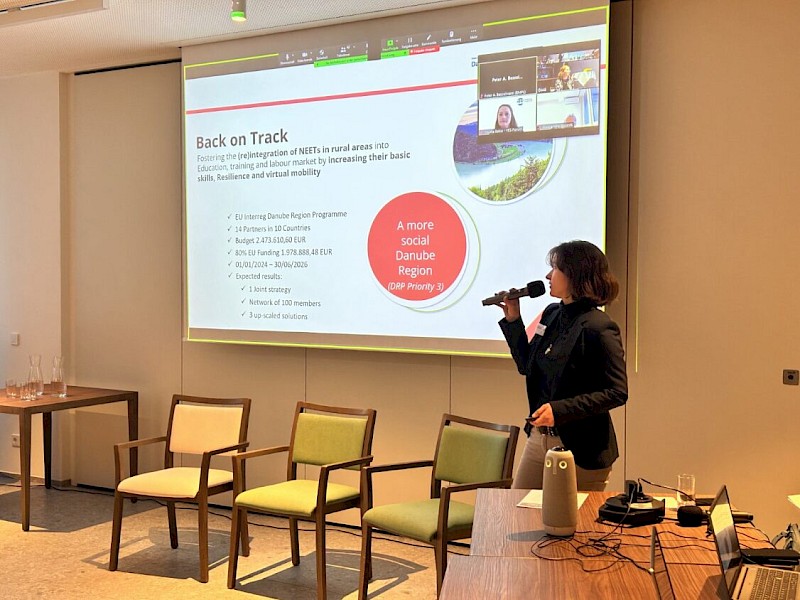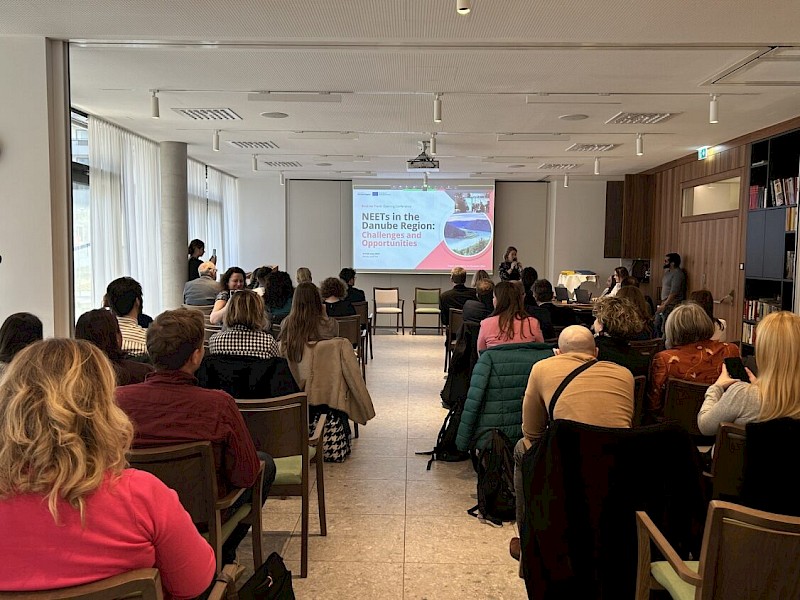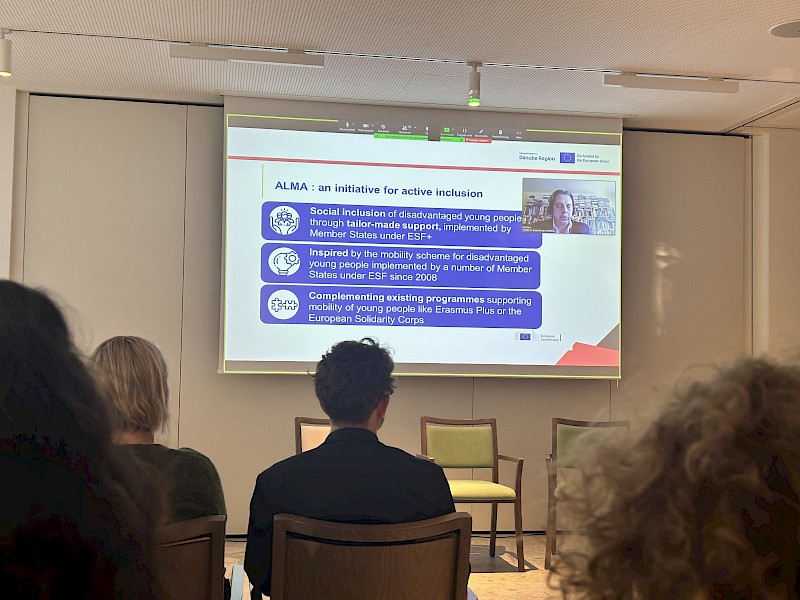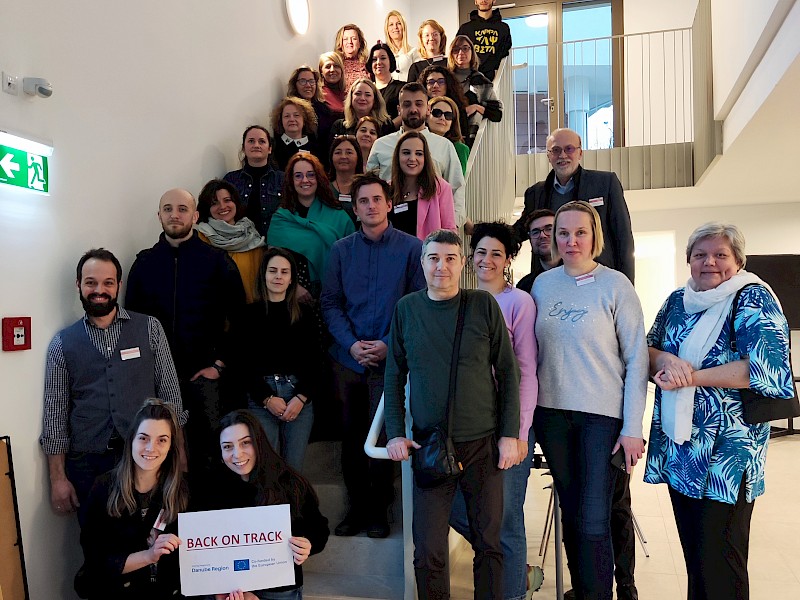The Back on Track (BoT) Project, funded by the Interreg Danube Region Programme, officially commenced its journey with an impactful Opening Conference on 12 February 2024, organised by ÖJAB in collaboration with the YES Forum. The event, serving as both the launch of the project and the kick-off conference, marked a crucial step in addressing the challenges faced by NEETs (young people not in education, employment, or training) in the Danube Region.
The conference started with the introduction to the BoT and the situation of NEETs. The percentage of NEETs in 2021 was 13.1% of young people (aged 15 to 29) across the EU. To tackle this urgent challenge, the EU has set itself the goal of reducing the NEET rate to below 9% by 2030. While in Danube countries such as Austria and Germany (age group 15-29) the target of a NEET rate of less than 9% has already been achieved, other Danube countries such as Bosnia-Herzegovina (21%) and Bulgaria (17%) recorded very high NEET rates in 2021. In rural regions this number is higher throughout all countries.
Therefore, the BoT project aims to foster the (re)integration of NEETs in rural areas into education, training and labour market by increasing their basic skills, resilience and virtual mobility. It was highlighted that the actions under the project shall contribute to a more Social Danube Region. Utilising the advantages of digitalisation, the project aims to bring innovation in the field through the digital inclusion of rural NEETs. Empowered young people from the rural areas shall become digitally included and lead a self-determined lives throughout the whole Danube Region.
Key note address on the challenges and opportunities of NEETs in the Danube Region was delivered by Peter Besselmann, Policy Officer, European Commission, who also presented an overview of instruments and initiatives on the EU level, such as the ALMA initiative.
During the panel discussion, the YES Forum representative, Dr. Violeta Bakia, focused on the work with vulnerable youth from the perspective of a European network, highlighting the link and contribution of the project to the European Pillar of Social Rights while pointing out at challenges and opportunities we may anticipate during the project implementation. Marija Vranešević (Philanthropy) showed main challenges they face during their work with rural NEET youth in Serbia, while Lorenz Papis (ÖJAB) brought in the perspective from Austria, providing insights from their programme AusbildungsFit which supports youth in education and vocational training.
Partners' first get-together
The project consortium of Back on Track is formed by 14 partners from 10 different countries. This heterogenous consortium of different entities aims through close collaboration to reach the objectives of the project. After the opening conference, partners had the opportunity to engage in a fruitful discussion about the project management, financial management, including the different roles and tasks of project team members and coordinated the planned project activities.




